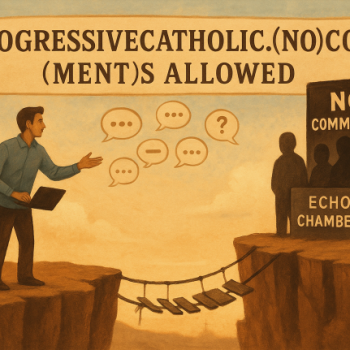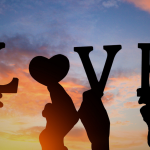Sudan genocide demands action (Small gestures count, too)
In Sudan, armed rebels are chaining families together and burning them alive.
They’ve surrounded whole farming villages, blocking shipments of food, poisoning water supplies and destroying crops, effectively starving their captives to death.
And the desperate few who try to make a run for it are brutally raped or killed, or both.
United Nations officials estimate that in the last 18 months in the region around Darfur in western Sudan, armed Arab militiamen known as the Janjaweed have killed more than 30,000 black African Sudanese. More than a million others have been driven from their homes to refugee camps in Chad and elsewhere.
The situation is unthinkable. It’s genocide, in all its horror, even if President Bush is reluctant to call it that.
A few weeks ago, a reader from Chicago named Jake wrote me, urging me to write about what was happening in Sudan.
“I can’t imagine whatever you’ve got planned for your next column will be more important,” Jake wrote.
He was absolutely right.
But I felt helpless — hopeless, even — to affect change in the bloodiest of battle zones in a country, on a continent, a world away.
The Sudanese government, which is backing the Janjaweed, who with impunity continue to attack rural farm communities, has backed out of a pledge to secure the Darfur region. The government instead is blocking humanitarian aid shipments and absorbing the militiamen into the police forces rather than forcing them to disarm, Human Rights Watch reported this week.
Meanwhile the atrocities continue.
What can one person in Everytown, USA do or say to change the horrific reality in Darfur?
Mary Lord, assistant general secretary of the American Friends Service Committee, the Quaker humanitarian group that works overseas, was telling me the other day about people who volunteer to go into war zones such as Sudan and place themselves between the rebels and the people they’re trying to kill. It’s called interpositioning.
“It sometimes works,” Lord said, recalling small groups of incredibly brave — some might say crazy — souls who have interpositioned themselves with success in the Balkans, East Timor, Rwanda and even in Nazi Germany during World War II.
“We give soldiers guns, and we tell them to be prepared to die. In the same way, if you do this kind of work to save lives, you might be killed, and you know it. But the reality is, sometimes you have a better chance if you’re trained, disciplined and unarmed,” she said.
It’s a heroic idea. But how many of us are that kind of hero? I’m not going to get on a plane for Darfur and put myself between a Janjaweed and the farmer he’s trying to burn to death.
Are you?
So, realistically, what can an average American do?
I ran into Bobby Rush, the Chicago congressman and pastor of Beloved Community Christian Church in Englewood, and asked him what one person here can do. In July, Rush was arrested during a protest in front of the Sudanese Embassy in Washington, D.C. He says it was the first time he’d been arrested since he was a Black Panther 30 years ago.
“I want to say take to the streets,” he told me. “We have to come together and have a demonstration to force our government to intervene on behalf of the people in Sudan who are dying, a lot of them for religious reasons,” said Rush, adding that he is considering organizing a mass demonstration in Chicago.
“[St.] Paul says we have to use our body as a living sacrifice,” he said. “Maybe for an hour and a half or an hour we can do a march, and we won’t feel helpless.”
Dozens of human rights and religious groups are urging the U.S. government to intervene. Some want our government to help fund a coalition of African nations that has said it will send its own armed forces into Sudan to disarm the Janjaweed.
If you don’t want to take to the streets, take to your computer. On the Web site www.faithfulamerica.org you can send an electronic plea to the White House as well as your U.S. senator and congressman/woman urging American intervention in Sudan.
It takes 20 seconds. It’s less dramatic than volunteering to be a human shield, but it’s something.
On Thursday, a small film crew supported by the groups Faithful America (an offshoot of the National Council of Churches) and True Majority (a grass-roots education and advocacy project started by Ben Cohen of Ben and Jerry’s ice cream fame), arrived in Chad. In the coming weeks, the three-person crew will record the experiences of Sudanese refugees in their own words.
“We need to close the moral distance between Americans and Darfurians,” said Ricken Patel, co-director of Faithful America.
The video testimonials will be made available to media outlets around the world and will be uploaded onto the Web site www.darfurgenocide.org for anyone to see for themselves what’s happening to the people of Darfur. You also can make a donation online to support the Darfur video project at the Darfur Genocide Web site.
And there’s prayer. There’s always prayer. Anyone can do that.
Last month at the Darfur Emergency Summit at the City University of New York, famed Holocaust survivor Elie Wiesel urged people of good faith and none to get involved in stopping the violence in Sudan.
“Sudan has become today’s world capital of human pain, suffering and agony,” Wiesel said with the force only a sage who has lived through unthinkable misery himself can truly command. “For a while, the so-called civilized world knew about it and preferred to look away.
“Now, people know. And they have no excuse for their passivity bordering on indifference,” Wiesel said. “How can a citizen of a free country not pay attention? How can anyone, anywhere not feel outraged? How can a person, whether religious or secular, not be moved by compassion? And above all, how can anyone who remembers remain silent?”
We can’t do nothing.
We must do something.
Even if it’s a gesture as small as adding our names to a petition, spending an hour on a picket line, or uttering a plea for divine intervention.
Even if it feels hopeless.
Copyright © The Sun-Times Company
All rights reserved. This material may not be published, broadcast, rewritten, or redistributed.















